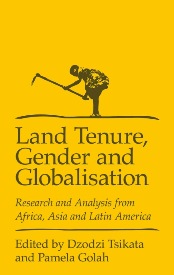About IDRC
A Crown corporation, we support leading thinkers who advance knowledge and solve practical development problems. We provide the resources, advice, and training they need to implement and share their solutions with those who need them most. In short, IDRC increases opportunities—and makes a real difference in people’s lives.
Working with our development partners, we multiply the impact of our investment and bring innovations to more people in more countries around the world. We offer fellowships and awards to nurture a new generation of development leaders.
What we do
IDRC funds research in developing countries to create lasting change on a large scale.
To make knowledge a tool for addressing pressing challenges, we
- provide developing-country researchers financial resources, advice, and training to help them find solutions to local problems.
- encourage knowledge sharing with policymakers, researchers, and communities around the world.
- foster new talent by offering fellowships and awards.
- strive to get new knowledge into the hands of those who can use it.
In doing so, we contribute to Canada’s foreign policy, complementing the work of Global Affairs Canada, and other government departments and agencies.
Resources
Displaying 131 - 135 of 324Participatory Geographic Information Systems (P-GIS) for natural resource management and food security in Africa : ict4d article, August 2010
Access to land is highly dependent on social status (ethnicity, social class) and family status (position in the household) of individuals. Women's access to land varies according to eco-geographical zones and as well, is dependent on their particular position and rank in the family household. Despite a formal recognition of the right of women to land in the Senegalese national Strategy for Gender Equality and Equity (SNEEG), social or cultural claims are always made to justify their limited access to resources.
Land Tenure, Gender and Globalisation
Drawing from field research in Cameroon, Ghana, Viet Nam, and the Amazon forests of Brazil, Bolivia, and Peru, this book explores the relationship between gender and land, revealing the workings of global capital and of people’s responses to it.
Urban Poverty and Environment Programme : Colombo; monitoring and evaluation component; monitoring findings as of December 2008 – April 2009; outcome mapping no. 2
This paper presents data collection for a component of the project related to the Monitoring and Evaluation (M&E) plan and its indicators. It focuses on strengthening community participation via the Community Development Committee (CDC). As the implementation activities of the Focus Cities (FC) project have maximised, the work load and pressures of responsibility on the CDC members has increased.
Adapting with enthusiasm : climate change adaptation in the context of participatory action research
The core of this successful climate change adaptation project is the quarterly climate change preparedness workshops conducted every 3 months. These provide a platform for reporting back to the larger community, to share new ideas with fellow farmers and scientists, and to plan next steps. Through a case study of Rooibos tea growers, this paper documents a community-based climate change adaptation project in the Suid Bokkeveld district of South Africa.
Mid-term review : sustainable management of Algerien steppes; a participatory learning approach / la gestion durable des parcours steppiques; la voie de l'apprentissage participatif
Though only at its mid-term, the project has been successful in policy influence, securing funding which for the first time will be used for forest and pastoral plantations on farmers’ land, without expropriating them, and thus assuring joint responsibility for proper management. New models put forward by the project combine preservation measures with intensive irrigated fodder production, and development of complementary income-generating activities involving olive and fruit-tree plantations.







